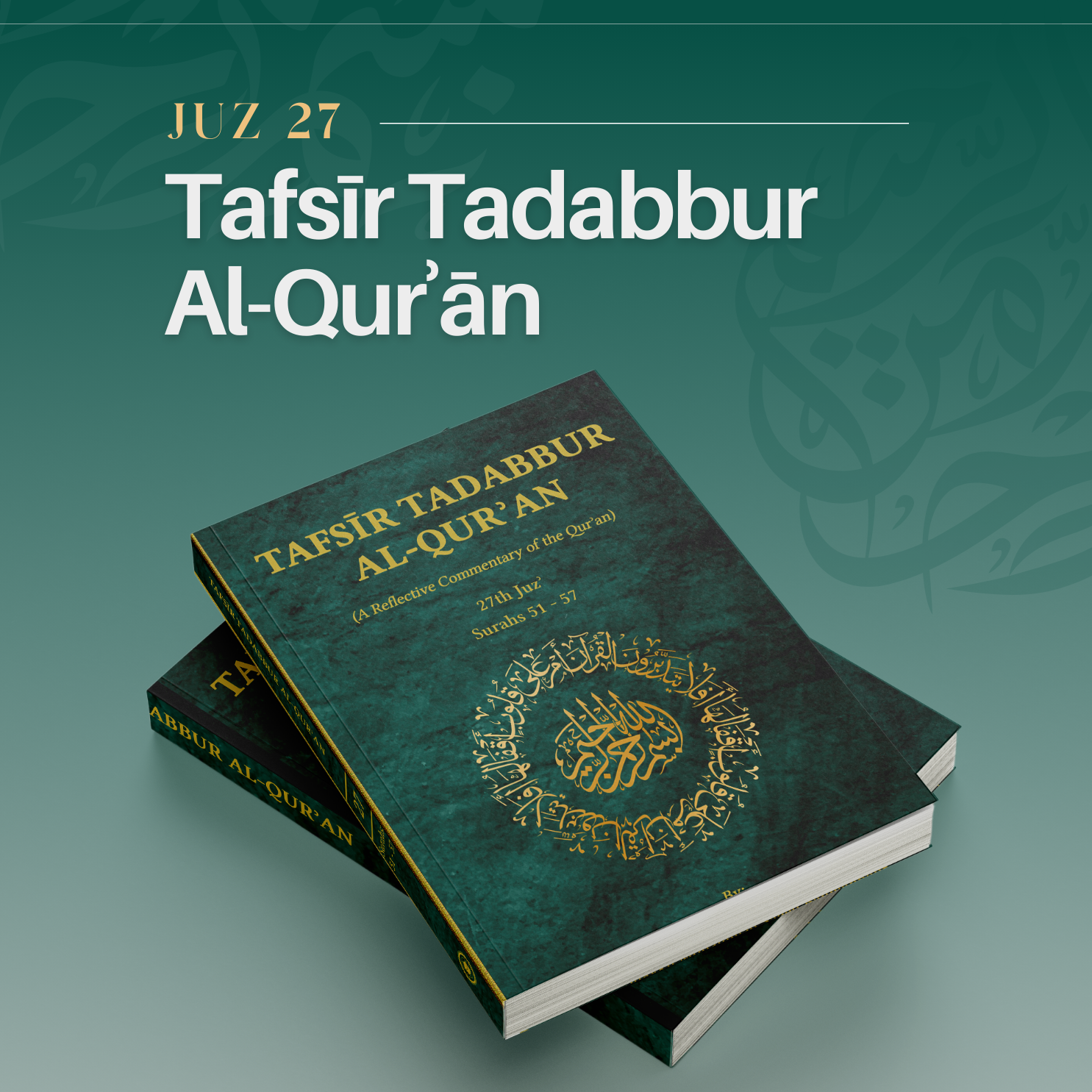Dr Jadallah Tawfiq Ahmad
Contributions by Dr Murtadha Alidina, Jafar Farishta & Afzal Merali
Translated by Alexander Khaleeli & Mona Makki
Translation
Peace be upon you, O heir of Adam, Allāh’s elect!
Peace be upon you, O heir of Noah, Allāh’s prophet!
Peace be upon you, O heir of Abraham, Allāh’s intimate!
Peace be upon you, O heir of Moses, to whom Allāh spoke directly!
Peace be upon you, O heir of Jesus, Allāh’s spirit!
Peace be upon you, O heir of Muḥammad, Allāh’s beloved!
Peace be upon you, O heir of the Commander of the Faithful, upon whom be peace!
Peace be upon you, O son of Muḥammad, Allāh’s chosen prophet!
Peace be upon you, O son of ʿAlī, the people’s chosen leader!
Peace be upon you, O son of Fāṭima, the radiant one!
Peace be upon you, O son of Khadīja the elder!
Peace be upon you, O Allāh’s avenger and the son of His avenger, and the one who has yet to be avenged!
I testify that you established the prayer, gave the zakāt,
Enjoined the good, forbade the evil,
And obeyed Allāh and His Messenger until the certainty of death overtook you,
So may Allāh curse the nation who killed you,
And may Allāh curse the nation who oppressed you,
And may Allāh curse the nation that heard about this and accepted it.
O my master! O Abā ʿAbdallāh!
I testify that you were a light that passed through noble loins and chaste wombs, uncontaminated by the pollutions of pre-Islamic Ignorance, and never swaddled in its dark clothes,
And I testify that you are one of a pillar of the religion and a support of the faithful,
And I testify that you are the good, righteous, pure, and rightly guided Imām who guides others and is pleased with Allāh’s will,
And I testify that the Imāms descended from you are the word of righteousness, the banners of guidance, the firmest handhold, and Allāh’s authority over the people of this world,
And I call on Allāh, His angels, His prophets, and His messengers to bear witness that I believe in you and in your return,
Being certain of the ordinances of my faith and the outcomes of my deeds,
And my heart is at peace with yours,
And my affair follows yours,
May Allāh’s blessings be upon you,
And upon your spirits, your bodies, and your forms,
Upon those of you who are present and those who are absent,
And upon your outward aspects and your inner ones!
Then prostrate upon the grave, kiss it, and say:
May my father and my mother be your sacrifice, O son of Allāh’s Messenger!
May my father and my mother be your sacrifice, O son of Allāh’s Messenger!
Terrible was the tragedy and grievous was your tribulation for us, and for all the inhabitants of the heavens and the earth,
So may Allāh curse the nation that saddled and bridled their horses and took up arms to fight you,
O my master, O Abā ʿAbdallāh!
I have journeyed to your sanctuary and approached your place of martyrdom,
I ask Allāh, on the account of the status you have with Him,
And the position that you occupy with Him,
To send His blessings on Muḥammad and the Family of Muḥammad,
And to keep me with you in this world and the next!
About Ziyārat Wārith
This ziyārat (‘salutation’) is one of the well-known ziyārāt used to salute Imām al-Ḥusayn (a), and it has been transmitted as one of the righteous acts when visiting the grave of al-Ḥusayn (a) on the Day of ʿArafa, as well as a salutation that can be recited on any occasion, in various forms.
Sources for Ziyārat Wārith
This salutation has been transmitted in a large number of sources, of which we will mention only three for the sake of brevity:
It has been transmitted in the Miṣbāḥ al-mutahajjid of Shaykh al-Ṭūsī, who records it thus:
A group narrated to us from Abū ʿAbdallāh Muḥammad ibn Aḥmad ibn ʿAbdallāh ibn Quḍāʿa ibn Ṣafwān ibn Mihrān al-Jamāl, from his father, from his grandfather Ṣafwān: ‘I asked al-Ṣādiq (a) for permission to visit the grave of al-Ḥusayn (a) and to tell me what acts I should perform for this. He said: “O Ṣafwān! Fast for three days before you depart, and bathe (ghusl) on the third day. Then, gather your family…” and he mentioned some acts, before saying: “…Then approach the entrance to the mausoleum (qubba), stand before the head of the grave, and say: Peace be upon you, O heir of Adam, Allāh’s elect…”’
Shaykh al-Mufīd transmits an identical account in his al-Mazār.
It has also been transmitted in another part of Shaykh al-Mufīd’s al-Mazār amongst the righteous actions to be performed when visiting the grave of al-Ḥusayn (a):
Peace be upon you, O heir of Adam, Allāh’s elect!
Peace be upon you, O heir of Noah, Allāh’s prophet!
Peace be upon you, O heir of Abraham, Allāh’s intimate!
Peace be upon you, O heir of Moses, to whom Allāh spoke directly!
Peace be upon you, O heir of Jesus, Allāh’s spirit!
Peace be upon you, O heir of Muḥammad, Allāh’s beloved!
Peace be upon you, O heir of the trustee of God’s Messenger!
Peace be upon you, O heir of al-Ḥasan, he who was pleased with God’s will!
Peace be upon you, O one who spoke the truth and was martyred!
Peace be upon you, O good and righteous legatee!
Peace be upon you and upon those souls who alighted in your courtyard and halted at your stopping place!
Peace be upon Allāh’s angels who surround you!
Peace be upon you, O Allāh’s avenger and the son of His avenger, and the one who has yet to be avenged!
I testify that you established the prayer, gave the zakāt,
Enjoined the good, forbade the evil,
That you recited the Book as befitted it to be recited,
Strived for Allāh with a striving worthy of Him,
Endured hardship for His sake,
And worshipped Him devotedly until the certainty of death overtook you.
May Allāh curse the nation that wronged you,
The nation that fought you,
The nation that cooperated against you,
The nation that betrayed you,
The nation that called you but would not answer you when called upon,
And the nation that heard about this and accepted it,
And cast them into the depths of Hell!
O Allāh! Curse those who denied Your messengers and wrecked Your Kaʿba,
Who violated what You had sanctified and desecrated Your Sacred House,
Who twisted the words of Your Book,
And shed the blood of the Household of Your Prophet,
Who brought forth corruption in Your earth,
And abased Your faithful servants therein!
O Allāh! Heap painful punishments upon them,
And confer upon me a worthy reputation amongst Your chosen allies,
Make their places of assembly beloved to me,
Attach me to them,
And place me with them in this world and the next,
O Most-merciful of the mercifiers!
In Kāmil al-ziyārāt, Ibn Qūlawayh narrates from his father, from Saʿd ibn ʿAbdallāh, from Abū ʿAbdallāh al-Rāzī, from al-Ḥasan ibn ʿAlī ibn Abī Ḥamza, from al-Ḥasan ibn Muḥammad ibn ʿAbd al-Karīm Abū ʿAlī, from al-Mufaḍḍal ibn ʿUmar, from Jābir al-Juʿfī:
Abū ʿAbdallāh (a) told al-Mufaḍḍal: ‘How far do you live from the grave of al-Ḥusayn (a)?’
He said: ‘May my father and my mother be your sacrifice! A day and a bit.’
He (a) said: ‘Do you visit it?’
He replied: ‘Yes.’
He (a) said: ‘Should I give you good tidings and cause to be joyful with some of its reward?’
He answered: ‘Yes, may I be your ransom!’
He (a) said: ‘When a man amongst you gathers his provisions and makes preparations to visit [al-Ḥusayn (a)], the denizens of the heavens rejoice for him. Then, when he leaves his house—whether riding or on foot—Allāh entrusts him to four thousand angels who invoke blessings upon him until he reaches the grave of al-Ḥusayn (a). O Mufaḍḍal! When you approach the grave of al-Ḥusayn ibn ʿAlī (a), stand at the entryway, and say these words, for each word carries a share of Allāh’s mercy!’
I said: ‘May I be your ransom! What is it?’
He (a) said: ‘You should say:
Peace be upon you, O heir of Adam, Allāh’s elect!
Peace be upon you, O heir of Noah, Allāh’s prophet!
Peace be upon you, O heir of Abraham, Allāh’s intimate!
Peace be upon you, O heir of Moses, to whom Allāh spoke directly!
Peace be upon you, O heir of Jesus, Allāh’s spirit!
Peace be upon you, O heir of Muḥammad, Allāh’s beloved!
Peace be upon you, O heir of ʿAlī, the trustee of Allāh’s Messenger!
Peace be upon you, O heir of al-Ḥasan, he who was pleased with God’s will!
Peace be upon you, O heir of Fāṭima, the daughter of Allāh’s Messenger!
Peace be upon you, O one who spoke the truth and was martyred!
Peace be upon you, O good and righteous legatee!
Peace be upon you, O authority of Allāh and son of His authority!
Peace be upon you and upon those souls who alighted in your courtyard and halted at your stopping place!
Peace be upon Allāh’s angels who surround you!
I testify that you established the prayer, gave the zakāt,
Enjoined the good, forbade the evil,
And worshipped Allāh devotedly until the certainty of death overtook you.
Peace be upon you, and Allāh’s mercy and His blessings!’
And elsewhere in Kāmil al-ziyārāt, there is a lengthy tradition narrated from Abū ʿAbd al-Raḥmān, from Muḥammad ibn Aḥmad ibn al-Ḥusayn al-ʿAskarī and Muḥammad ibn al-Ḥasan together, from al-Ḥasan ibn ʿAlī ibn Mahziyār, from his father, ʿAlī ibn Mahziyār, from Muḥammad ibn Abī ʿUmayr, from Muḥammad ibn Marwān, from Abū Ḥamza al-Thumālī, that Imām al-Ṣādiq (a) said:
‘When you intend to visit the grave of al-Ḥusayn (a), fast on Wednesday, Thursday, and Friday’—then he mentioned a number of deeds and invocations to perform in a lengthy speech, before saying:—‘Then draw a little closer and say:
Peace be upon you, O heir of Adam, Allāh’s elect!
Peace be upon you, O heir of Noah, Allāh’s prophet!
Peace be upon you, O heir of Abraham, Allāh’s intimate!
Peace be upon you, O heir of Moses, to whom Allāh spoke directly!
Peace be upon you, O heir of Jesus, Allāh’s spirit!
Peace be upon you, O heir of Muḥammad, Allāh’s beloved, may Allāh bless him and his family!
Peace be upon you, O heir of the Commander of the Faithful, ʿAlī ibn Abī Ṭālib, the trustee of Allāh’s Messenger and Allāh’s Walī!
Peace be upon you, O heir of al-Ḥasan ibn ʿAlī, the Pure One!
Peace be upon you O heir of Fāṭima al-Zahrāʾ, Leader of the Women of the Worlds!
Peace be upon you, O one who spoke the truth and was martyred!
Peace be upon you, O good and righteous trustee who was satisfied with God’s will!
Peace be upon you, O faithful and pious one!
I testify that you established the prayer, gave the zakāt,
Enjoined the good, forbade the evil,
And worshipped Allāh devotedly until the certainty of death overtook you.
Peace be upon you, O Abā ʿAbdallāh, and Allāh’s mercy and blessings too!
Peace be upon you and upon those souls who alighted in your courtyard and halted at your stopping place!
Peace be upon Allāh’s angels who surround you and upon those who make pilgrimage to the grave of the son of the Prophet of Allāh!’
An investigation into its authenticity
To begin with, we must examine the chain of narrators for this ziyārat to determine whether it is sound (ṣaḥīḥ) or whether there are any problems with it. If the chain is sound, then we need investigate it no further, otherwise me must see if there is some other way to authenticate it. Shaykh al-Mufīd does not provide a chain of narrators for us to study, but Shaykh al-Ṭūsī does, namely: ‘A group narrated to us from Abū ʿAbdallāh Muḥammad ibn Aḥmad ibn ʿAbdallāh ibn Quḍāʿa ibn Ṣafwān ibn Mihrān al-Jamāl, from his father, from his grandfather Ṣafwān…’ And Ibn Qūlawayh provides us with not one but two chains of narration.
We will begin with Shaykh al-Ṭūsī’s chain of narration in Miṣbāḥ al-mutahajjad:
Shaykh al-Ṭūsī’s chain of narrators in Miṣbāḥ al-mutahajjid
This chain of narrators reads as follows:
- A group (jamāʿa)
- Muḥammad ibn Aḥmad
- Aḥmad ibn ʿAbdallāh
- Ṣafwān
We will discuss each of these links in turn.
A group: We do not immediately know who is in this group for us to be able to determine whether or not they are trustworthy narrators. However, if refer to the Shaykh al-Ṭūsī’s Fihrist, we find that Shaykh al-Ṭūsī informs us about some members of this group after listing the works of Muḥammad ibn Aḥmad, from whom they narrate. He writes: ‘These books were reported to us by a group that includes al-Sharīf Abū Muḥammad al-Ḥasan ibn al-Qāsim al-Muḥammadī and Shaykh al-Mufīd, who report from the author directly.’
Now, there is no doubt regarding the reliability of Shaykh al-Mufīd or his status as a scholar. Therefore, there is no issue regarding the group that includes such an important figure as a member.
Muḥammad ibn Aḥmad: Sayyid al-Khūʾī has compiled all of the information about him in various biographical dictionaries in his Muʿjam rijāl al-ḥadīth. Here, we will briefly quote his findings:
‘Muḥammad ibn Aḥmad ibn ʿAbdallāh ibn Quḍāʿa: = Muḥammad ibn Aḥmad ibn Abū ʿAbdallāh.
Al-Najāshī says: “Muḥammad ibn Aḥmad ibn ʿAbdallāh ibn Quḍāʿa ibn Ṣafwān ibn Mihrān al-Jamāl, a client (mawlā) of the Banī Asad. His teknyonym is Abū ʿAbdallāh. He is a leading scholar of the sect (shaykh al-ṭāʾifa), trustworthy, a jurist, and learned. He had status with the Sulṭān, which he acquired on account of his debate with the judge (qāḍī) of Mosul regarding the Imāmate in the presence of Ibn Ḥamadān. In the course of the debate, the judge challenged him to mubāhila, and he accepted and agreed to meet the next day for that purpose. They came, pronounced the formula of mubāhila, shook hands, and parted. The judge would go to the court of the governor Ibn Ḥamadān every day, but he did not come that day or the next, so the governor sent a messenger to ask after him. His messenger returned and said: ‘After he left the site of the mubāhila, he came down with a fever and the hand with which he shook on it became blackened and swollen. He died the following day.’ Word of this about Abū ʿAbdallāh al-Ṣafwānī spread amongst the rulers and it placed him in their good graces and elevated his status amongst them. He has several books, including: Kitāb thawāb al-Qurʾān, Kitāb al-radd ʿalā Ibn Rabāḥ al-Mamṭūr, Kitāb al-radd ʿalā al-Wāqifa, Kitāb al-ghayba wa kashf al-ḥīra, Kitāb al-imāma, Kitāb al-radd ʿalā ahl al-awāʾ, Kitāb fī al-ṭalāq al-thalāth, al-Jāmiʿ fī al-fiqh, Kitāb uns al-ʿālim wa adab al-mutaʿallim, Kitāb maʿrifat al-furūḍ min Kitāb yawm wa layla, Kitāb ghurar al-akhbār wa nawādir al-āthār, and Kitāb al-taṣarruf. My teacher Abū al-ʿAbbās Aḥmad ibn ʿAlī ibn Nūḥ informed me of all of these directly from the author.”
Shaykh al-Ṭūsī (600) says: “Muḥammad ibn Aḥmad ibn ʿAbdallāh ibn Quḍāʿa, with the teknonym Abū ʿAbdallāh al-Ṣafwānī. He is a descendent of the companion of Imām al-Ṣādiq (a) Ṣafwān ibn Mihrān al-Jamāl. He preserved a great deal of knowledge, was a good speaker, and it is said that he was illiterate but dictated his books from memory, including: Kitāb al-kashf wa al-ḥujja, Kitāb uns al-ʿālim wa taʾdīb al-mutaʿallim, Kitāb yawm wa layla, Kitāb tuḥfat al-ṭālib wa bughyat al-rāghib, Kitāb al-mutʿa wa taḥlīlihā wa al-radd ʿalā man ḥaramahā, Kitāb suḥbat Āl al-Rasūl wa dhikr iḥan aʿdāʾihim, Kitāb al-radʿa wa al-nahī ʿan kull bidʿa, and Kitāb al-manāzil. These books were reported to us by a group that includes al-Sharīf Abū Muḥammad al-Ḥasan ibn al-Qāsim al-Muḥammadī and Shaykh al-Mufīd, who report from the author directly.”
And al-Ṭūsī also lists him in his Rijāl (68) under those who did not narrate directly from the Prophet’s Household (a), saying: “Muḥammad ibn Aḥmad ibn ʿAbdallāh ibn Quḍāʿa ibn Ṣafwān ibn Mihrān al-Jamāl, known as al-Ṣafwānī, with the teknonum Abū ʿAbdallāh. He has written compositions, which we have mentioned in the Fihrist. He narrates from ʿAlī ibn Ibrāhīm ibn Hāshim and al-Talʿakbarī narratrs from him. Muḥammad ibn Muḥammad ibn al-Nuʿmān informed us about him, and Abū Muḥammad al-Ḥasan ibn al-Qāsim al-ʿAlawī as well, who is one of the elect who lives in Baghdad.”
Ibn Dāwūd (4072) says in the second part of his Rijāl: “Muḥammad ibn Aḥmad ibn Quḍāʿa Abū ʿAbdallāh ibn Mihrān, Abū ʿAbdallāh al-Ṣafwān. From Ibn al-Ghaḍāʾirī: ‘I do not deny anything that he narrates save that which comes via his father, from his grandfather, from al-Ṣādiq (a), for it is something not well-known and I have seen that it contains unacceptable falsehoods, and I think it to be a fabrication of his father.’”
I say: As I have said on a number of occasions, the attribution of this work to Ibn al-Ghaḍāʾirī is not conclusively established, and even if we assume that it is, this statement does not in any way prejudice Muḥammad ibn Aḥmad ibn Quḍāʿa as a narrator or conflict with al-Najāshī’s assessment of him as trustworthy. There is no doubt about this person’s reliability, and Shaykh al-Ṭūsī’s chain of narrators to him is sound.’
Clearly, there is no doubt concerning the status or reliability of this narrator, so there is no problem as regards Muḥammad ibn Aḥmad in this chain.
Aḥmad ibn ʿAbdallāh: He is not mentioned in the books on the reliability of narrators, save for what has been said about him in the Rijāl of Ibn Dāwūd, citing the Rijāl of Ibn al-Ghaḍāʾirī: “Muḥammad ibn Aḥmad ibn Quḍāʿa Abū ʿAbdallāh ibn Mihrān, Abū ʿAbdallāh al-Ṣafwān. From Ibn al-Ghaḍāʾirī: ‘I do not deny anything that he narrates save that which comes via his father, from his grandfather, from al-Ṣādiq (a), for it is something not well-known and I have seen that it contains unacceptable falsehoods, and I think it to be a fabrication of his father.’”
However, even this statement does not render him unreliable as a narrator. This is for two reasons: First, the attribution of this work to Ibn al-Ghaḍāʾirī has not been conclusively established, as Sayyid al-Khūʾī has pointed out already; Second, the opinion of a scholar of narrators (rijālī) must rest on actual testimony as opposed to supposition. In this case, it is clear that Ibn al-Ghaḍāʾirī is expressing a supposition, as he uses the phrase: ‘I think’ (wa aẓunn).
However, even if there is no real criticism of the narrator here, neither is there any basis for declaring him trustworthy, especially considering that Shaykh al-Ṭūsī’s chain of narration from Ṣafwān is not via his own route but via that of his contemporary, al-Najāshī. Perhaps this was a route of Shaykh al-Ṭūsī’s as well, but he does not mention it in his Fihrist alongside his other route to Ṣafwān, which is sound and unproblematic. And yet, he does not narrate this ziyārat via this other stronger route.
From this, we can see that not all of the narrators can be explicitly ascertained as being reliable. Therefore, a study of the chain of narrators shows that we do not have a sound chain if we were to look at it from a stringent lens, even though Ṣafwān was a respected scholar.
Ibn Qūlawayh’s chain of narrators in Kāmil al-ziyārāt
There are two chains for Ziyārat wārith in Ibn Qūlawayh’s work. The first reads as follows: ‘My father narrated to me from Saʿd ibn ʿAbdallāh, from Abū ʿAbdallāh al-Rāzī, from al-Ḥasan ibn ʿAlī ibn Abī Ḥamza, from al-Ḥasan ibn Muḥammad ibn ʿAbd al-Karīm Abū ʿAlī, from al-Mufaḍḍal ibn ʿUmar, from Jābir al-Juʿfī, from Abū ʿAbdallāh (a).’
In the interests of brevity, all of the members of this chain of narrators have statements about them which impair their reliability as transmitters, aside from those who are known as narrators but about whom nothing has been said in either praise or criticism (they are muhmal). Therefore, this chain of narrators is also unsound unless we adopt the axiom that all the narrators found in the chains of Kāmil al-ziyārāt are automatically considered reliable. Some scholars consider all the narrators found in the chains of Ibn Qūlawayh’s Kāmil al-ziyārāt to be reliable, and if we accept this, we would deem the chain to be sound, otherwise it is unsound.
The second chain reads: ‘Abū ʿAbd al-Raḥmān transmitted to me, from Muḥammad ibn Aḥmad ibn al-Ḥusayn al-ʿAskarī and Muḥammad ibn al-Ḥasan together, from al-Ḥasan ibn ʿAlī ibn Mahziyār, from his father, ʿAlī ibn Mahziyār, from Muḥammad ibn Abī ʿUmayr, from Muḥammad ibn Marwān, from Abū Ḥamza al-Thumālī…’
All of the narrators in this chain are considered trustworthy (thiqa) or are praised (mamdūḥ) in the books of narrators, with the exception of Muḥammad ibn Aḥmad ibn al-Ḥusayn al-ʿAskarī and al-Ḥasan ibn ʿAlī ibn Mahziyār. Furthermore, Muḥammad ibn Aḥmad ibn al-Ḥusayn al-ʿAskarī, narrates in parallel with Muḥammad ibn al-Ḥasan ibn Alī ibn Mahziyār, and if he had been authenticated, it would been possible to substitute Muḥammad ibn Aḥmad al-ʿAskarī with Muḥammad ibn al-Ḥasan ibn Alī ibn Mahziyār; however, this latter has not been authenticated. Also, al-Ḥasan ibn ʿAlī ibn Mahziyār, because his name is mentioned in works of narrators, but he is neither praised nor criticised, this is a second unauthenticated narrator in the chain, who has not been explicitly authenticated. Of course, once again, if we adopt the general principle that all the narrators in Kāmil al-ziyārāt’s chains of narration are automatically trustworthy, then this will validate him and all of the work’s other narrators. If we adopt this principle, the chain can be considered to be sound, otherwise, other approaches to authenticating it must be explored.
Other approaches to authentication
Our study has shown that the chains of narration for Ziyārat wārith present several obstacles to authenticating it. However, these can be addressed based on certain principles from the science of narrators (ʿilm al-rijāl), which have led some to affirm the authenticity of this ziyārat on the basis of the chains of narration outlined above. Others do not agree that these chains alone can validate it.
At this point, it is worth noting that the ziyārat of Imām al-Riḍā (a) that appears in numerous ritual manuals, i.e., books of supplications, and which has also been transmitted in books of traditions, such as al-Tahdhīb, Man lā yaḥḍuruhu l-faqīh, and ʿUyūn akhbār al-Riḍā, among others, uses the same expressions—albeit with minor variations—as found in the present ziyārat. This can be taken as a sign of its authenticity, insofar as it corresponds with the ziyārat of Imām al-Riḍā (a), especially given that the latter is a later text than Ziyārat wārith.
To this can be added other pieces of contextual evidence that increase the probability of Ziyārat wārith having originated with the Infallibles (a), or in fact yield conviction about this. For example, Ziyārat wārith contains a number of formulae and ideas that are found in other supplications and ziyārāt. Below are a few examples of this:
The following is transmitted in Miṣbāḥ al-mutahajjid:
‘Under Allāh’s watchful gaze, you moved from one set of chaste loins to another and were carried from one chaste womb to another, unpolluted by the ignorance of the ignorant, never associated with immoralities. You are pure and your source is pure.’
Many of the expressions found in Ziyārat ʿĀshūrāʾ, although sometimes with slightly different formulae, are similar to those found in Ziyārat wārith, as will be apparent to any reader.
Many of the expressions in what has been narrated by ʿAbdallāh ibn Muḥammad al-ʿĀbid from Imām al-Ḥasan (a), whereby the Imām dictated these words to him and he wrote them down, are also similar.
From what we have outlined above, it is clear that Ziyārat wārith belongs to a body of devotional literature that has been transmitted in some of our oldest, most reliable, and most important books. It has several chains of narration that some scholars consider to be sound enough to confirm its validity, while comparing it with other similar texts also provides evidence of its authenticity as originating with the Infallibles (a) and, in fact, provide a degree of certainty about this.
Everything we have discussed so far concerns establishing the fact that this ziyārat emanated from the Infallibles (a), and it is clear that there is much to be said in this regard. However, this is not the sole criterion for making use of such supplications and salutations, as we have highlighted on other occasions. To recapitulate: Scholars have said that the value of a ziyārat, supplication, or the like thereof does not depend solely on it definitively originating with the Prophet’s Household (a). In fact, reciting a supplication or ziyārat can be a recommended act (mustaḥabb) regardless of whether or not it originated with an Infallible (a) so long as its contents do not contradict what is true and correct (as established by the sources of the religion). Therefore, the mere fact that the chain of the narrators cannot be conclusively validated does not affect the recommended nature of this ziyāra.
Of course, if no contextual evidence (qarāʾin)—or something akin to this—for the authenticity of the ziyārat can be found, then it cannot be performed as a specific supplication taught by the Imāms (a). Instead, someone who thinks it likely that it emanated from them but lacks certainty may perform it as the generally recommended act of sending salutations upon the Prophet’s Family (ziyārat Ahl al-Bayt), with the hope of it being authentic. In fact, even someone who is convinced that it emanated from the Prophet’s Household may recite it with this intention in mind.
Conclusions
This ziyārat is attributed to Imām al-Sādiq (a), but its chain of narration might not be universally accepted as authentic owing to some questions about its chains of narrators, as we discussed above. However, there are other indications that can be placed alongside these chains of narrators (that do, in any case, lead back to the Imām) and that very much increase the likelihood of its being authentic, perhaps to the point of being convinced of this. So, whoever is convinced of this fact can recite this ziyārat and derive blessings from it, with the intention of specific istiḥbāb. However, even if someone is not convinced due to genuine research that this ziyārat definitely emanated from the Imāms (a), they can still recite it as something that is generally recommended; i.e., with the intention of general istiḥbāb of reciting ziyārāt as acts of worship and a way of showing devotion to Ahl al-Bayt (a). Rather, someone who is not fully convinced of its authenticity may recite it with the hope that it emanated from the Imāms (a) (niyyat rajāʾ al-maṭlūbiyya), although it is better to recite it with the assumption that it is authentic. As we have already mentioned, a ziyārat, being a recommended act, does not need to have definitively originated with the Infallibles (a) to be permissible to recite. This is because, when it comes to recommended acts (mustaḥabbāt), the operational principle is that of leniency with regards to authenticity (qāʿidat al-tasāhul), and the ziyārat is, at its base, a recommended rather than an obligatory act. Therefore, there is no problem in reciting any ziyārat, even if it definitely did not emanate from the Imāms (a), so long as its contents are sound. In fact, if there is a good possibility of it having emanated from the Imāms, the believer should still treat it as something of importance, let alone if someone is convinced of this fact.





















